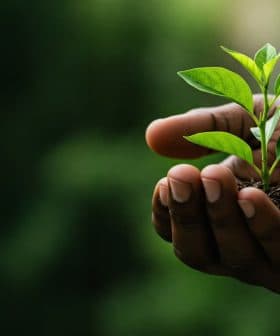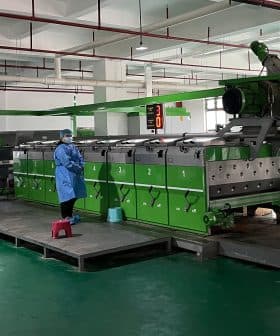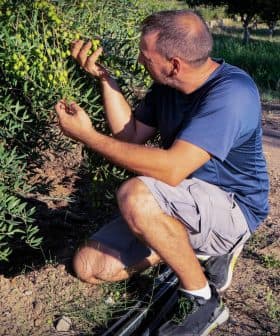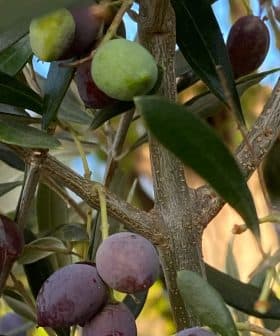Farmers Are Facing the Brunt of Portugal’s Worsening Drought
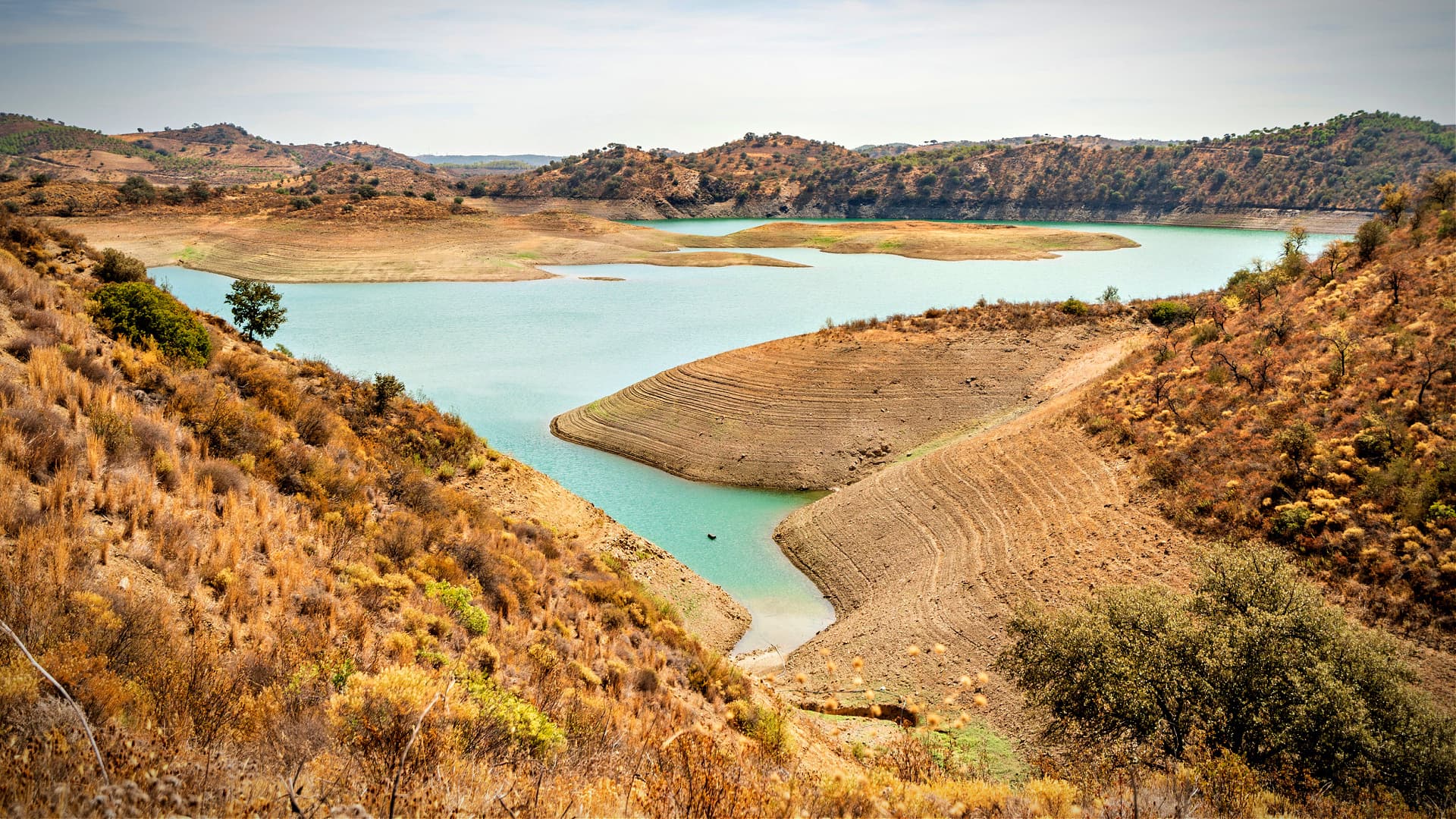
Portugal is facing one of its worst droughts in 20 years, severely impacting livestock and farming. The absence of significant rainfall is affecting soil moisture and crop growth, while experts warn that water reservoir levels are decreasing, leading to water scarcity and lower quality. Plans to mitigate the drought’s effects are being implemented, but farmers are concerned about the potential impact on crop production and prices if spring rains do not arrive.
Portugal is facing one of the worst droughts of the last 20 years. Livestock and farming have been severely impacted.
Farmers say that the prolonged absence of significant rainfall throughout the country is taking a toll on soil moisture and will likely affect a range of crops.
The drought problem is not limited to the rural world and farmers. Drought will affect us all. The shortages begin in agriculture, but there will be a day when they reach our taps in our homes.
Experts warn that diminished water levels in the country’s reservoirs will decrease water availability and lower water quality. Dryness and higher-than-usual temperatures also are exacerbating wildfires, which are traditionally very rare during winter.
“The scenario is not going to change soon,” Rui Cortes, a professor of agro-environment and biology research at the University of Trás-os-Montes and Alto Douro, told Olive Oil Times.
See Also:Up to 27 Million in Spain Face Water Shortages by 2050, Minister WarnsIn a bulletin, the Portuguese Institute of Sea and Atmosphere (IPMA) confirmed that the situation might worsen in February and affect more areas of the country.
Researchers estimate that 54 percent of Portugal is already enduring a moderate drought, 34 percent a severe drought and the remainder is experiencing an extreme drought.
“We were used to seeing much more rainfall in the northern area of the country, at least five or six times what we are seeing now,” Cortes said. “It is not yet as bad as in 1996 or 2005, but it is poised to get worse.”
“It could easily become the driest year on record,” he added. “In these last three months, rainfall was equal to 17 percent of the average. At the moment, there is no immediate problems with the water supply for the urban population. The whole country, not only the south, is suffering from the lack of water.”
Agricultural lands dependent upon irrigation are among the most affected sectors in the country, including Portugal’s rapidly expanding high density and super-high-density olive groves.
Portuguese farmers and institutions have spent years investing in the development of the olive oil sector in terms of production, technology and surface area.
“It is a striking situation if we think of olive oil,” Cortes said. “We are having a very productive season, there are so many olives that some Portuguese producers turn to Spain to process their olives. In this scenario, water scarcity will probably impact the next season.”
In the south, where water scarcity has affected irrigation-dependent farmers the most, experts warn that crops such as almonds, vineyards and olives will all be affected by reduced water availability. The water levels of the major reservoirs of the region are dropping quickly.
“The government is now acting to reduce the presence of fish biomass in those waters because as the levels go down, the resulting excess of fish will affect water quality,” Cortes said.
According to a report published by Correio da Manha, dam levels from north to south are strikingly low, down 50 percent or more of their overall capacity.
An assessment by the APA agency, which monitors the country’s water resources, shows that 14 do not reach 40 percent of their normal operating levels. The survey of underground water presence has also shown lower-than-usual levels.
Rogério Ferreira, the head of the General Direction of Agriculture and Rural Development (DGADR), told Lusa news agency that the situation is being closely monitored.
Contingency plans also are being deployed for the most affected locations, such as southeastern Alentejo, a highly relevant farming area in the south, and the Algarve, the southern-most region of the country.
According to the DGADR, the goal of the current operations is to provide farmers with water. At the same time, plans are being discussed to mitigate the effects of the drought and invest in the partial re-use of wastewater for farming needs.
“To cope with the situation, relevant volumes of water are being diverted from the biggest reservoirs to the smaller ones, which also raises the costs for farmers,” Cortes said.
In a note, the Confederation of Farmers (CAP) described the situation as “extreme” and called for government intervention.
“All winter activity is compromised and evolving in a situation of extreme gravity concerning livestock and autumn and winter crops,” Eduardo Oliveira e Sousa, CAP president, told Lusa news agency.
CAP warned the hot winter has caused many plants to prematurely enter the “expressive photosynthetic activity” phase, which is unusual for the season. In this growth phase, plants and trees look for moisture, of which there may not be enough.
“The scenario is very worrying,” Oliveira e Sousa said. “I am surprised that there was no official message directed at the public not to waste water in any way. The drought problem is not limited to the rural world and farmers. Drought will affect us all. The shortages begin in agriculture, but there will be a day when they reach our taps in our homes.”
Farmers now hope spring rains, which, in the case of the dormant plants such as the fruit trees, could bring some relief. However, if rain does not come, the consequences of the drought will impact all crops and product prices.
Current plans might not be enough to mitigate the situation, warned experts. Cortes said many current government projects aim at expanding irrigation-dependent agriculture, including olive groves, vineyards and almonds.
“Those projects are already in an advanced development phase. They are mostly located in the country’s central basin and include the building of 15 small-scale dams to increase the irrigation potential,” he said.
“Those crops are highly demanding in terms of water,” Cortes added. “In the current scenario, we are working on expanding irrigation-dependent crops. So the water re-use plans might only have residual effects.”
“When we have rainfall, it increasingly concentrates in short periods. As a result, the consequences may be inundations and loss of soil, a relevant contributor to erosion,” he concluded. “In the last 20 years, we did not have a single wet year.”


